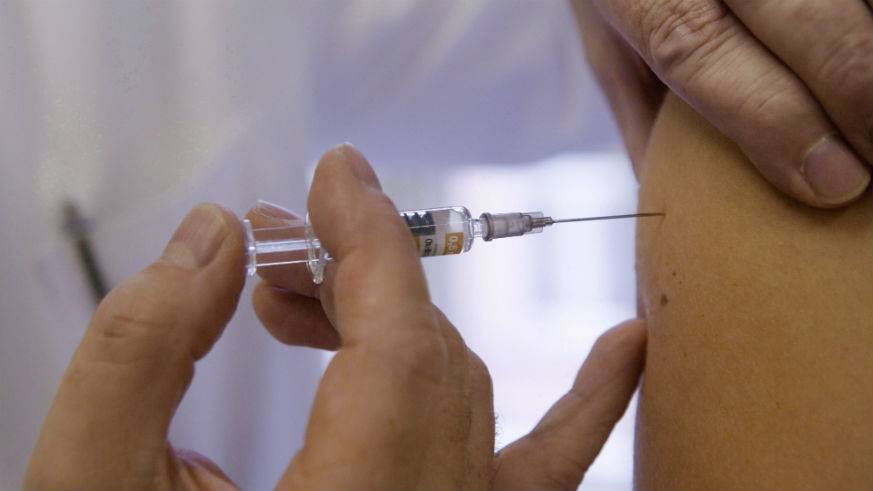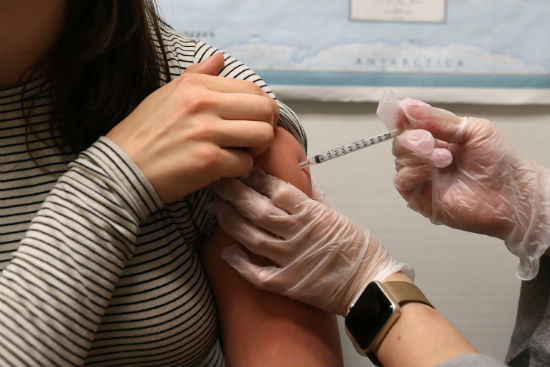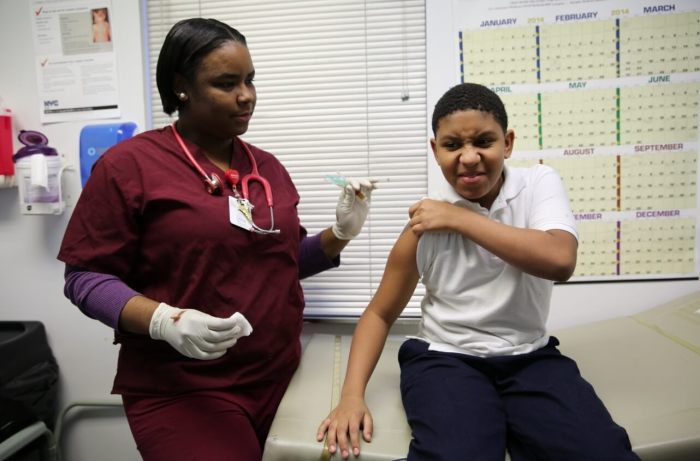The dreaded viral flu season is almost here — and it’ll likely stick around like an unwanted houseguest until as late as May.
And though you can ignore an unwanted houseguest, you can’t ignore the flu: The U.S. Centers for Disease Control says that deaths attributed to the illness have ranged from 12,000 to 56,000 annually since 2010. Another 140,000 to 710,000 have been hospitalized each year.
You might not be able to completely avoid the virus that causes the flu, but you can add a layer of protection by getting a flu shot. Kids should get them, too: The CDC recommends that every person over six months should get the vaccine.
When are flu shots available?
Flu vaccine supplies are sent to licensed facilities starting in August and continue until they’re gone — typically in late October. The CDC recommends getting your shot sometime in the early fall. The best time is to get yours by late October, but you can still get it in January.
Just don’t wait until you start feeling sick: It takes two weeks for the vaccine to build up the antibodies to fight the flu. Children who need two doses should get their flu shots as early as possible because they need to wait four weeks between getting the first and second doses.
Why you should be happy to get the flu shot: It could make it more effective
We know getting a shot ranks ranks pretty low on the list of your favorite things to do, but a new study published in the journal Brain, Behavior, and Immunity shows that a better mood was associated with higher blood antibodies to the H1N1 virus at both four and 16 weeks post-inoculation.
For the study, British researchers recorded the mood, stress, sleep patterns, diets, negative thoughts and other markers of both mental and physical health in 138 people between the ages of 65 and 85. The researchers are quick to say it’s an observational study and that they couldn’t control all variables, but it’s a sign that having a positive attitude while getting the shot can’t hurt.
“It’s not there aren’t other influences,” senior study author Kavita Vedhara, professor of health psychology at the University of Nottingham, told The New York Times. “but it looks like how you’re feeling on the day you’re vaccinated may be among the more important.”
























